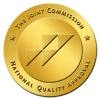Treatment for Dual Diagnosis
Eagleview offers Treatment for Dual Diagnosis in Iowa
Dual diagnosis, also known as co-occurring disorders, refers to the presence of both mental health and substance use issues in an individual. According to a report in the Journal of the American Medical Association (JAMA), approximately 50% of individuals with a mental health disorder will also experience a substance use disorder at some point in their lives.* This means that someone with dual diagnosis is struggling with two separate but interconnected conditions that require specialized treatment and care.
At Eagle View, we can care for patients diagnosed with a primary mental health condition which is further complicated through the dual diagnosis of substance use disorder.

Our Approach
At Eagleview Behavioral Health, treating dual diagnosis involves an integrated and coordinated approach that addresses both the mental health disorder and the substance use disorder. Treatment is provided in a therapeutic environment managed by doctors, who are board-certified psychiatrists.
Dual Diagnosis Intensive Outpatient Program (Dual Diagnosis IOP)
Now offering a Dual Diagnosis Intensive Outpatient Program (Dual Diagnosis IOP)
This program provides support in a therapeutic environment for patients who have a mental health concern as a primary diagnosis and also have concerns with alcohol and opioid use.
Mondays, Tuesdays, and Thursdays from 4:30-7:30 pm.
For more information, please call 563-500-1212.
The Professional Care Team Includes:
- Board-Certified Psychiatrists
- Nurse Practitioners
- Social workers
- Nursing teams
- Recreational Therapists
- Support Workers
Dual Diagnosis Facts from NAMI – National Alliance on Mental Illness**
- Those with mental illness are more susceptible to addiction.
- Substance use is twice as prevalent among adults with mental illness—because of the desire to self-medicate symptoms.
- Some people with mental illness may not even know that their substance use constitutes as a disorder.
- Prolonged use of substances increases the underlying risk for mental illness.
CONDITIONS COMMONLY ASSOCIATED WITH DUAL DIAGNOSIS OR CO-OCCURING DISORDERS
Some of the most common mental health conditions associated with dual diagnosis include anxiety, depression, bipolar disorder, personality disorders, PTSD, schizophrenia, and ADHD. These conditions often coexist with substance use disorders, creating unique opportunities in treatment and recovery.
People with dual diagnosis issues may use alcohol, opioids, prescription drugs, and benzodiazepines to self-medicate mental health issues and this creates a vicious cycle. Let Eagleview Behavioral Health help break this pattern.
Our Comprehensive and Integrated Treatment Includes:
- Comprehensive evaluation
- Structured and therapeutic environment
- Individual care plans
- Care coordination and discharge planning
- Individual and group therapy
- Family support and education
- Recreational programs
- Medication management & education
- 24/7 nursing support
our care help clients to:
- Attain stability in mental health symptoms
- Minimize adverse effects/outcomes related to substance use
- Enhance coping and problem-solving abilities, including managing emotions
- Improve functioning at home and at work by addressing subjects like relationship concerns
- Maintain physical wellness
- Restore consistency and continuity in life
Caring for the whole person
Let us help and support your individualized needs, in a caring clinical environment and where all your issues are understood. We want to help and will provide the tools, and skills for recovery and to assist with your overall wellness.
We know that recovery is an ongoing process, so we will assist with your aftercare resources and coordination of care to provide you with continuing support.

